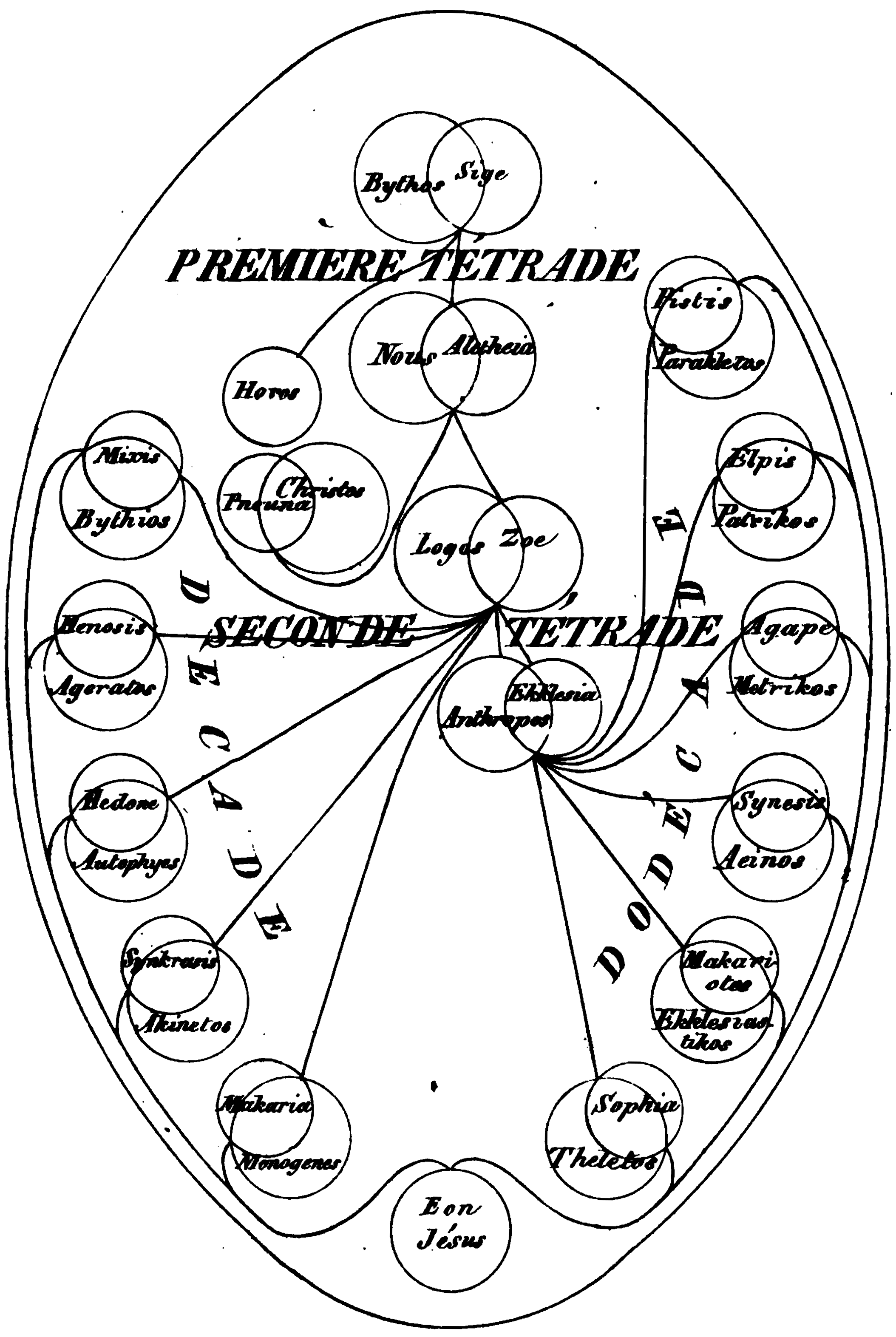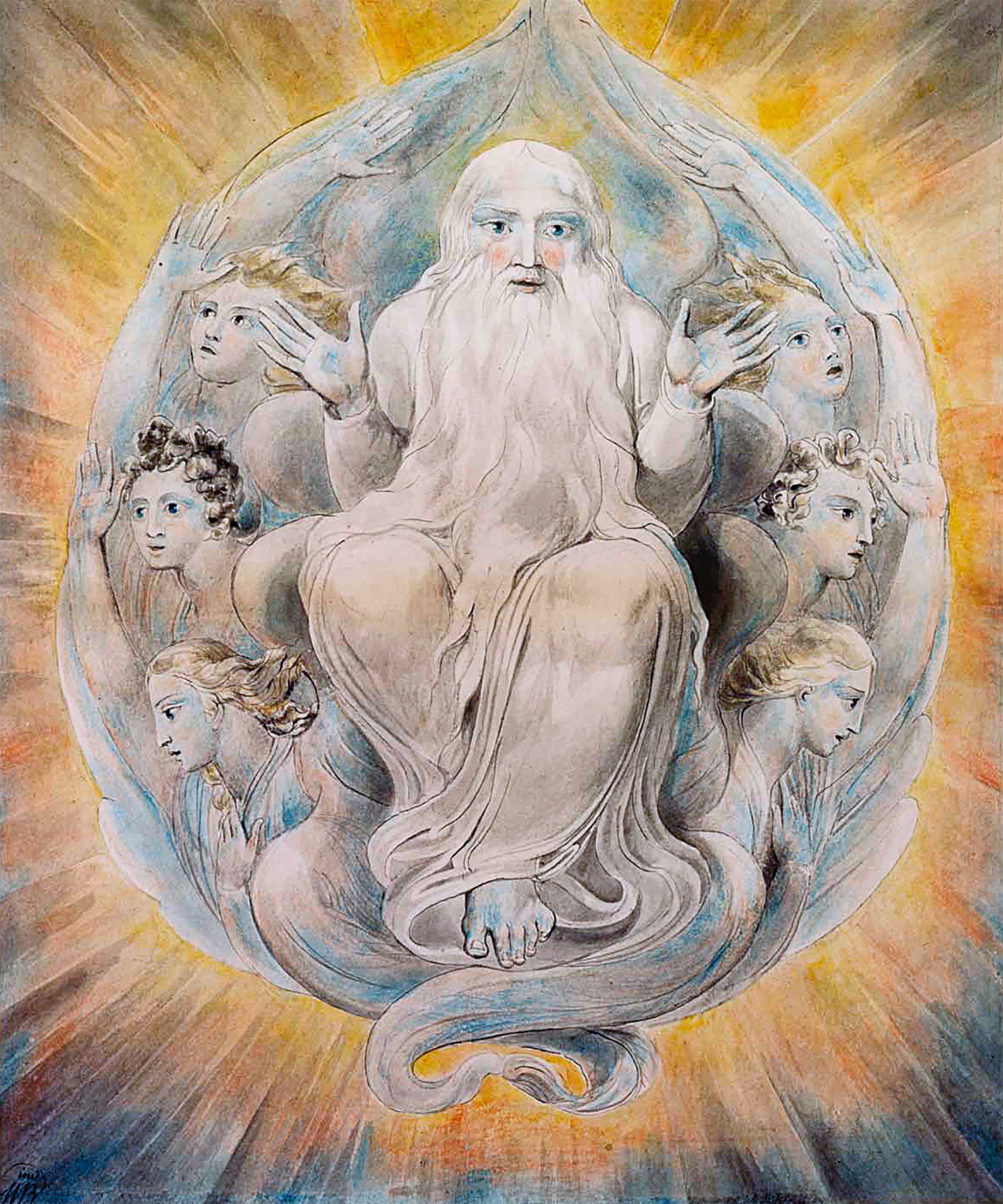|
Demiurge
In the Platonic, Neopythagorean, Middle Platonic, and Neoplatonic schools of philosophy, the Demiurge () is an artisan-like figure responsible for fashioning and maintaining the physical universe. Various sects of Gnostics adopted the term ''demiurge''. Although a fashioner, the demiurge is not necessarily the same as the creator figure in the monotheistic sense, because the demiurge itself and the material from which the demiurge fashions the universe are both considered consequences of something else. Depending on the system, they may be considered either uncreated and eternal or the product of some other entity. Some of these systems are monotheistic, while others are henotheistic or polytheistic. The word ''demiurge'' is an English word derived from ''demiurgus'', a Latinised form of the Greek or . It was originally a common noun meaning "craftsman" or "artisan", but gradually came to mean "producer", and eventually "creator." The philosophical usage and the proper nou ... [...More Info...] [...Related Items...] OR: [Wikipedia] [Google] [Baidu] |
Gnosticism
Gnosticism (from Ancient Greek language, Ancient Greek: , Romanization of Ancient Greek, romanized: ''gnōstikós'', Koine Greek: Help:IPA/Greek, [ɣnostiˈkos], 'having knowledge') is a collection of religious ideas and systems that coalesced in the late 1st century AD among Early Christianity, early Christian sects. These diverse groups emphasized personal spiritual knowledge (''gnosis'') above the Proto-orthodox Christianity, proto-orthodox teachings, traditions, and authority of religious institutions. Generally, in Gnosticism, the Monad (Gnosticism), Monad is the supreme God who emanates divine beings; one, Sophia (Gnosticism), Sophia, creates the flawed demiurge who makes the material world, trapping souls until they regain divine knowledge. Consequently, Gnostics considered material existence flawed or evil, and held the principal element of salvation to be direct knowledge of the hidden divinity, attained via mystical or esoteric insight. Many Gnostic texts deal not in co ... [...More Info...] [...Related Items...] OR: [Wikipedia] [Google] [Baidu] |
Valentinianism
Valentinianism was one of the major Gnostic Christian movements. Founded by Valentinus ( CE – CE) in the 2nd century, its influence spread widely, not just within the Roman Empire but also from northwest Africa to Egypt through to Asia Minor and Syria in the east. Later in the movement's history, it broke into Eastern and a Western schools. The Valentinian movement remained active until the 4th century, declining after Emperor Theodosius I issued the Edict of Thessalonica in 380, which established Nicene Christianity as the state religion of the Roman Empire. No evidence exists that Valentinus was labeled a heretic during his lifetime. Irenaeus of Lyons, who was the first patristic source to describe Valentinus's teachings—though likely incompletely and with a bias toward the time's proto-orthodox Christianity—did not finish his apologetic work '' Against Heresies'' until the later 2nd century, likely sometime after Valentinus's death. The rapid growth of the Vale ... [...More Info...] [...Related Items...] OR: [Wikipedia] [Google] [Baidu] |
Aeon (Gnosticism)
In many Gnosticism, Gnostic systems, there are various emanationism, emanations of God, who is known by such names as One, Monad (Gnosticism), Monad, ''Aion teleos'' (αἰών τέλεος "The Broadest Aeon"), Bythos (, "depth" or "profundity"), ''Arkhe'' (, "the beginning"). In Gnosticism these emanations of God are named as ''ARKHIRES'' (, "''before'' the beginning") and as Aeons (which are also often named and may be paired or grouped). In different systems these emanations are differently named, classified, and described (but emanation is common to all forms of 'Gnosticism'). In Basilidian Gnosis they are called sonships (υἱότητες ''huiotetes''; sing.: υἱότης ''huiotes''); according to Marcosians, Marcus, they are numbers and sounds; in Valentinianism they form male/female pairs called syzygies (, from σύζυγοι ''syzygoi'': lit. "yokings together"). This source of all being is an Aeon, in which an inner being dwells, known as ''Ennoea'' (, "thought, in ... [...More Info...] [...Related Items...] OR: [Wikipedia] [Google] [Baidu] |
Pleroma
Pleroma (, literally "fullness") generally refers to the totality of divine powers. It is used in Christian theological contexts, as well as in Gnosticism. The term also appears in the Epistle to the Colossians, which is traditionally attributed to Paul the Apostle. The word is used 17 times in the New Testament. Etymology The word literally means "fullness", from the verb (, "to fill"), from (Wikt:πλήρης, πλήρης, "full"). Christianity New Testament The word itself is a relative term, capable of many shades of meaning, according to the subject with which it is joined and the antithesis to which it is contrasted. It denotes the result of the action of the verb ''pleroun;'' but ''pleroun'' is either *to fill up an empty thing (''e.g.'' ), or *to complete an incomplete thing (''e.g.'' ); and the verbal substantive in -''ma'' may express either #the objective accusative after the verb, 'the thing filled or completed,' or # the cognate accusative, 'the state of ... [...More Info...] [...Related Items...] OR: [Wikipedia] [Google] [Baidu] |
Neoplatonism
Neoplatonism is a version of Platonic philosophy that emerged in the 3rd century AD against the background of Hellenistic philosophy and religion. The term does not encapsulate a set of ideas as much as a series of thinkers. Among the common ideas it maintains is monism, the doctrine that all of reality can be derived from a single principle, "the One". Neoplatonism began with Ammonius Saccas and his student Plotinus (c. 204/5 – 271 AD) and stretched to the sixth century. After Plotinus there were three distinct periods in the history of neoplatonism: the work of his student Porphyry (third to early fourth century); that of Iamblichus (third to fourth century); and the period in the fifth and sixth centuries, when the academies in Alexandria and Athens flourished. Neoplatonism had an enduring influence on the subsequent history of Western philosophy and religion. In the Middle Ages, Neoplatonic ideas were studied and discussed by Christian, Jewish, and Muslim thinkers. ... [...More Info...] [...Related Items...] OR: [Wikipedia] [Google] [Baidu] |
Monotheism
Monotheism is the belief that one God is the only, or at least the dominant deity.F. L. Cross, Cross, F.L.; Livingstone, E.A., eds. (1974). "Monotheism". The Oxford Dictionary of the Christian Church (2 ed.). Oxford: Oxford University Press. A distinction may be made between exclusive monotheism, in which the one God is a singular existence, and both inclusive and pluriform monotheism, in which multiple gods or godly forms are recognized, but each are postulated as extensions of the same God. Monotheism is distinguished from henotheism, a religious system in which the believer worships one god without denying that others may worship different gods with equal validity, and monolatry, monolatrism, the recognition of the existence of many gods but with the consistent worship of only one deity. The term ''monolatry'' was perhaps first used by Julius Wellhausen. Monotheism characterizes the traditions of Abrahamic religions, Abrahamic religions such as Judaism, Samaritanism, Christi ... [...More Info...] [...Related Items...] OR: [Wikipedia] [Google] [Baidu] |
Creator Deity
A creator deity or creator god is a deity responsible for the creation of the Earth, world, and universe in human religion and mythology. In monotheism, the single God is often also the creator. A number of monolatristic traditions separate a secondary creator from a primary transcendent being, identified as a primary creator.(2004) Sacred Books of the Hindus Volume 22 Part 2: Pt. 2, p. 67, R.B. Vidyarnava, Rai Bahadur Srisa Chandra Vidyarnava Monotheism Atenism Initiated by Pharaoh Akhenaten and Queen Nefertiti around 1330 BCE, during the New Kingdom period in ancient Egyptian history. They built an entirely new capital city ( Akhetaten) for themselves and worshippers of their sole creator god in a wilderness. His father used to worship Aten alongside other gods of their polytheistic religion. Aten, for a long time before his father's time, was revered as a god among the many gods and goddesses in Egypt. Atenism was countermanded by later pharaoh Tutankhamun, as chro ... [...More Info...] [...Related Items...] OR: [Wikipedia] [Google] [Baidu] |
Hesiod
Hesiod ( or ; ''Hēsíodos''; ) was an ancient Greece, Greek poet generally thought to have been active between 750 and 650 BC, around the same time as Homer.M. L. West, ''Hesiod: Theogony'', Oxford University Press (1966), p. 40.Jasper Griffin, "Greek Myth and Hesiod", J.Boardman, J.Griffin and O. Murray (eds.), ''The Oxford History of the Classical World'', Oxford University Press (1986), p. 88. Several of Hesiod's works have survived in their entirety. Among these are ''Theogony'', which tells the origins of the gods, their lineages, and the events that led to Zeus's rise to power, and ''Works and Days'', a poem that describes the five Ages of Man, offers advice and wisdom, and includes myths such as Pandora's box. Hesiod is generally regarded by Western authors as 'the first written poet in the Western tradition to regard himself as an individual persona with an active role to play in his subject.' Ancient authors credited Hesiod and Homer with establishing Greek relig ... [...More Info...] [...Related Items...] OR: [Wikipedia] [Google] [Baidu] |
Socratic Dialogue
Socratic dialogue () is a genre of literary prose developed in Greece at the turn of the fourth century BC. The earliest ones are preserved in the works of Plato and Xenophon and all involve Socrates as the protagonist. These dialogues, and subsequent ones in the genre, present a discussion of moral and philosophical problems between two or more individuals illustrating the application of the Socratic method. The dialogues may be either dramatic or narrative. While Socrates is often the main participant, his presence in the dialogue is not essential to the genre. Platonic dialogues Most of the Socratic dialogues referred to today are those of Plato. Platonic dialogues defined the literary genre subsequent philosophers used. Plato wrote approximately 35 dialogues, in most of which Socrates is the main character. The protagonist of each dialogue, both in Plato's and Xenophon's work, usually is Socrates who by means of a kind of interrogation tries to find out more about the other ... [...More Info...] [...Related Items...] OR: [Wikipedia] [Google] [Baidu] |
Analogy Of The Divided Line
The analogy of the divided line () is presented by the Ancient Greece, Greek philosopher Plato in the ''The Republic (Plato), Republic'' (509d–511e). It is written as a dialogue between Glaucon and Socrates, in which the latter further elaborates upon the immediately preceding analogy of the Sun at the former's request. Socrates asks Glaucon not only to envision this unequally bisected line but to imagine further bisecting each of the two segments. Socrates explains that the four resulting segments represent four separate 'affections' (παθήματα) of the psyche. The lower two sections are said to represent the visible while the higher two are said to represent the Intelligibility (philosophy)#Usage, intelligible. These affections are described in succession as corresponding to increasing levels of reality and truth from conjecture (wiktionary:εικασία, εἰκασία) to belief (:Wiktionary:πίστις, πίστις) to thought (Dianoia, διάνοια) and finally ... [...More Info...] [...Related Items...] OR: [Wikipedia] [Google] [Baidu] |
Platonism
Platonism is the philosophy of Plato and philosophical systems closely derived from it, though contemporary Platonists do not necessarily accept all doctrines of Plato. Platonism has had a profound effect on Western thought. At the most fundamental level, Platonism affirms the existence of abstract objects, which are asserted to exist in a third realm distinct from both the sensible external world and from the internal world of consciousness, and is the opposite of nominalism." Philosophers who affirm the existence of abstract objects are sometimes called platonists; those who deny their existence are sometimes called nominalists. The terms "platonism" and "nominalism" have established senses in the history of philosophy, where they denote positions that have little to do with the modern notion of an abstract object. In this connection, it is essential to bear in mind that modern platonists (with a small 'p') need not accept any of the doctrines of Plato, just as modern nomina ... [...More Info...] [...Related Items...] OR: [Wikipedia] [Google] [Baidu] |







